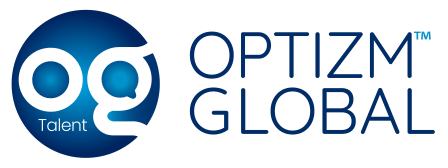Remote hiring has become famous for companies seeking to leverage a diverse talent pool and adopt flexible work arrangements in today’s ever-changing work environment. However, remote hiring also presents unique challenges that companies must manage effectively.
This inclusive guide will provide a comprehensive breakdown of remote hiring’s complexities and offer approaches to overcome these challenges, ensuring a smooth and successful recruitment process.
Lack of Face-to-Face Interaction:
The absence of face-to-face interaction in remote hiring can pose challenges in evaluating candidates’ soft skills, communication abilities, and cultural fit. To bridge this gap:
- Embrace Video Interviews: When recruiting new candidates, use video conferencing tools to conduct virtual interviews. Doing this will allow you to assess their nonverbal cues, professionalism, and overall demeanor. Using tools that help you make informed decisions about candidates is essential. Video conferencing can provide valuable insights into candidates’ suitability for the role.
- Simulate Work Scenarios: Utilize collaboration platforms with virtual whiteboards and shared documents to simulate real-world work scenarios. This practice enables recruiters to assess candidates’ problem-solving skills, teamwork capabilities, and adaptability to remote environments.
Ensuring Cultural Fit:
Maintaining a cohesive company culture is essential for remote teams’ success. To ensure cultural alignment during the hiring process:
- Define Company Values: When hiring, it’s vital to clearly express your company’s core values, mission, and vision and integrate them into your hiring criteria. Keep your message simple and direct, using familiar language and short sentences. Organizing your ideas logically, starting with the most critical information is essential.
- Cultural Fit Interviews: Incorporate specific questions during interviews to evaluate candidates’ alignment with your company culture, work style preferences, and experience in diverse or remote settings.
Time Zone Coordination:
Effective communication and collaboration are essential when working with remote teams across different time zones. Establishing effective strategies to address the difficulties posed by time zone disparities is crucial. These strategies ensure everyone is on the same page despite the distance.
- Flexible Meeting Schedules: Adopt flexible meeting schedules that accommodate team members’ time zones, considering rotational meeting timings to ensure inclusivity.
- Time Zone Tools: Use time zone conversion tools and calendar integrations to streamline scheduling, minimize conflicts, and maintain clarity regarding deadlines and deliverables.
Communication and Collaboration:
Using Technology for Seamless Interaction Robust communication and collaboration platforms improve productivity and teamwork within remote teams. Key strategies include:
- Centralized Communication Tools: Implement robust communication platforms like Slack, Microsoft Teams, or Zoom to facilitate real-time messaging, video calls, and document sharing.
- Establish Communication Norms: Define explicit communication norms, response times, preferred channels, and escalation procedures to enhance collaboration efficiency and transparency.
Onboarding and Training:
Structured plans and accessible resources are crucial to effectively onboarding and training remote hires. To achieve this, consider the following approaches for building solid foundations remotely.
- Comprehensive Onboarding Plans: Create thorough onboarding strategies encompassing virtual tours, team member introductions, provision of company policies access, and tailored training modules for specific roles.
- Online Training Resources: Offer interactive online training modules, webinars, and knowledge repositories to facilitate continuous learning and skill development for new hires.
Security Concerns:
Remote hiring introduces cybersecurity risks that organizations must address proactively. Critical strategies for enhancing security include:
- Secure Data Handling: Implement secure platforms and encryption protocols for storing and sharing candidate information, ensuring compliance with data protection regulations such as GDPR or CCPA.
- Cybersecurity Training: Provide ongoing cybersecurity training to employees, covering topics such as phishing awareness, secure password management, and data privacy best practices.
Evaluating Technical Skills:
Remotely leveraging Virtual Assessments and Projects. Assessing candidates’ technical proficiency requires innovative approaches and practical evaluations. Consider the following strategies:
- Online Technical Assessments: Use online platforms and tools to conduct technical assessments, coding challenges, and quizzes to evaluate candidates’ skills and problem-solving abilities.
- Virtual Projects: Assign candidates virtual projects or case studies that mirror real-world scenarios. This practice allows recruiters to assess their practical knowledge, collaboration skills, and ability to deliver results remotely.
Conclusion:
Remote hiring can be challenging. It involves evaluating cultural fit, dealing with time zone differences, effective communication, and cybersecurity. However, organizations can overcome these challenges by using technology, transparent processes, and prioritizing cultural alignment to build successful remote teams.
Remote hiring can provide access to top talent and create workforce diversity, innovation, and adaptability, leading to sustained success. Are you ready to meet your next top performer? Transform your hiring process effortlessly with our expert team by your side. For a free consultation on how remote hiring can elevate your business, reach out to us at info@optizmglobal.com. We’re excited to assist you in navigating the future of work.
For more visit: https://optizmglobal.com/blogs/






